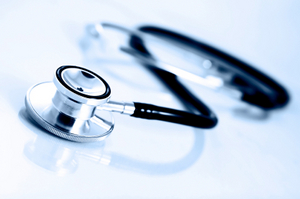Polycystic Ovarian Syndrome (PCOS), also known as Polycystic Ovary Syndrome, is a condition that affects one in every 10 women, according to the Center for Young Women’s Health. Unfortunately, according to PCOS Journal, it is also one of the most frequently diagnosed conditions plaguing many women of childbearing age.
So what is PCOS, and how do you know if you might have it?
PCOS is a hormonal- or endocrine-based condition that causes not only hormonal disturbances but also external physical changes in your body. PCOS also typically involves the development of a number of small cysts on at least one of your ovaries. These cysts can be so numerous that they appear as a string of pearls across your ovary.
What are the signs? Do I have PCOS?
First of all, I need to put in the usual writer disclaimer here: If you believe that you may have PCOS or you are able to identify with a number of symptoms on the following checklist, please head over to your doctor or naturopath and have a chat about your concerns.
If you feel more comfortable walking into a medical office with a list in hand, feel free to print out this article, mark off your symptoms and use it as a talking guide for you and your health care professional.
Now, on to the symptoms:
- Very irregular periods – this can be in many forms:
a) Heavy periods
b) Infrequent menstruation
c) Absent periods
d) Irregularly occurring menstrual periods - Hirsutism – an increase in hair growth on the face and body. A few common places for excess hair growth besides the face are the stomach, thighs, chest, back, toes and fingers.
- Acanthosis Nigricans – darkened, velvety patches of skin hat occur on the body. Typically the sites for the darkened skin are the knees, neck, underarms, groin area and inner thighs.
- Skin problems such as acne, dry skin or excessively oily skin.
- Weight gain, much of the weight being centered around the waist
- Skin tags – these typically benign little tags of skin can grow pretty much anywhere on the body but are often found on the neck, groin and underarms. For me, they were primarily on my neck.
- Anxiety.
- Depression.
- Mood swings.
- Fatigue.
- Mild to severe Alopecia – thinning hair on the head.
- Difficulty getting to sleep or staying asleep.
- Sleep disorders, including sleep apnea.
- Pelvic pain.
- Heavy, irregular bleeding, often with clots.
- Infertility.
- Multiple cysts on at least one ovary (in my case, the small cysts appeared on both ovaries, but in some cases no cysts appear at all).
- Insulin imbalances (typically insulin resistance, as was the case with me).
- Elevated cholesterol levels.
- Elevated testosterone.
- Low progesterone.
- Elevated androgen levels.
- Other hormonal imbalances.
- Decreased libido.
Keep in mind that you do not have to experience all of these symptoms to suffer from PCOS. Contrary to the name of the condition, you do not even have to have cysts on your ovaries to have PCOS.
However, if you can identify with the majority of the symptoms listed here, chances are you might have PCOS. There’s only one true way to find out, though – go talk to your preferred medical professional and get an accurate diagnosis. I know it can be a little scary, but trust me, you’re not alone in this. You have at least one in every 10 women right there at your side!
———————–
Sources:
Khan, A. (2010). Nutrition for Polycystic Ovary Syndrome. Livestrong.com. http://www.livestrong.com/article/334710-nutrition-for-polycystic-ovary-syndrome/
June 02, 2011.
PCOS Journal. (2011). PCOS Symptoms and Signs.
http://pcosjournal.com/pcos-symptoms-signs-checklist/
June 03, 2011.
Personal Experience – I have had PCOS for 22 years and have been able to manage it effectively for the past 13!

